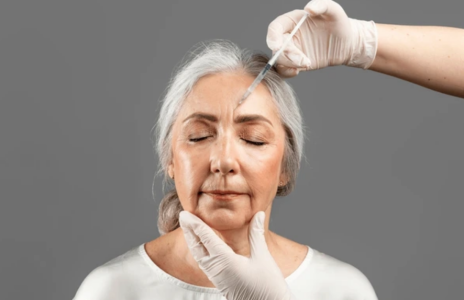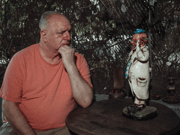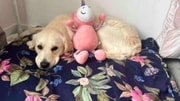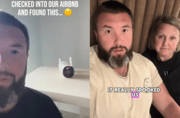TGA warns about fake Botox after border seizure sparks safety alert
By
Gian T
- Replies 10
Interest in cosmetic enhancements continues to rise, with more people exploring options to reduce visible signs of ageing.
But behind the booming demand lies a growing concern: unauthorised products are quietly entering the market.
Experts are now sounding the alarm, warning that these could pose serious risks to health and safety.
The Therapeutic Goods Administration (TGA), Australia’s medical watchdog, has sounded the alarm after seizing two separate batches of counterfeit Botox at the border.
These dodgy imports were purchased from overseas websites and arrived in boxes that, at first glance, looked just like the real deal from reputable manufacturers Allergan and AbbVie.
But as the saying goes, the devil is in the details. It was the little things—misspelled words, odd grammar, and strange fonts—that tipped off eagle-eyed authorities.
While the boxes listed the correct types of botulinum toxins, closer inspection revealed inconsistencies in spelling, spacing, and text bolding.
When the TGA checked with the genuine manufacturers, they confirmed that the batch numbers—C7211C4 and HA 33946—were fakes.
Why is this such a big deal? Botox isn’t just a beauty product; it’s a prescription-only medicine in Australia, made from a neurotoxin protein called botulinum.
When administered correctly by a trained professional, it temporarily relaxes the muscles that cause wrinkles. But if you inject a counterfeit product, you’re playing Russian roulette with your health.
The TGA’s warning is clear: 'These injectable products may pose a serious risk to your health and should not be used.'
Internationally, non-approved Botox products have been linked to severe botulism infections—a rare but life-threatening condition that can paralyse your muscles, including those needed for breathing.
It’s a sobering reminder that bargains from unknown overseas websites are simply not worth the risk when it comes to medicines and cosmetic treatments.
The TGA urges all Australians to exercise extreme caution and only buy medicines from reputable sources. If you’re ever in doubt, consult your healthcare provider or a registered local pharmacy.
To stay safe from fake cosmetic products, always buy from licensed Australian clinics or pharmacies and steer clear of overseas websites.
Check the packaging for any signs of poor quality, like spelling errors or odd fonts. Ensure your practitioner is properly registered and can verify where the product originated.
And remember, if a deal seems too good to be true, it probably is.
The rise of online shopping has made it easier than ever to access products worldwide, but it’s also opened the door to a flood of counterfeit medicines.
These fakes aren’t just ineffective; they can be downright dangerous, containing the wrong ingredients, incorrect dosages, or even harmful contaminants.
The TGA and other authorities are working hard to keep these products out of Australia, but they can’t catch everything.
That’s why it’s so important for all of us—especially those in the over-60s community, who may be more vulnerable to health complications—to stay vigilant and informed.

Have you ever been tempted to buy medicines or cosmetic treatments online? Do you have any tips for spotting fakes, or have you had a close call with a dodgy product? We’d love to hear your stories and advice—share your thoughts in the comments below.
Read more: Authorities warn Aussies over the rise of demand for this medication: 'This is a weekly issue with every GP'
But behind the booming demand lies a growing concern: unauthorised products are quietly entering the market.
Experts are now sounding the alarm, warning that these could pose serious risks to health and safety.
The Therapeutic Goods Administration (TGA), Australia’s medical watchdog, has sounded the alarm after seizing two separate batches of counterfeit Botox at the border.
These dodgy imports were purchased from overseas websites and arrived in boxes that, at first glance, looked just like the real deal from reputable manufacturers Allergan and AbbVie.
But as the saying goes, the devil is in the details. It was the little things—misspelled words, odd grammar, and strange fonts—that tipped off eagle-eyed authorities.
While the boxes listed the correct types of botulinum toxins, closer inspection revealed inconsistencies in spelling, spacing, and text bolding.
When the TGA checked with the genuine manufacturers, they confirmed that the batch numbers—C7211C4 and HA 33946—were fakes.
Why is this such a big deal? Botox isn’t just a beauty product; it’s a prescription-only medicine in Australia, made from a neurotoxin protein called botulinum.
When administered correctly by a trained professional, it temporarily relaxes the muscles that cause wrinkles. But if you inject a counterfeit product, you’re playing Russian roulette with your health.
The TGA’s warning is clear: 'These injectable products may pose a serious risk to your health and should not be used.'
Internationally, non-approved Botox products have been linked to severe botulism infections—a rare but life-threatening condition that can paralyse your muscles, including those needed for breathing.
It’s a sobering reminder that bargains from unknown overseas websites are simply not worth the risk when it comes to medicines and cosmetic treatments.
To stay safe from fake cosmetic products, always buy from licensed Australian clinics or pharmacies and steer clear of overseas websites.
Check the packaging for any signs of poor quality, like spelling errors or odd fonts. Ensure your practitioner is properly registered and can verify where the product originated.
And remember, if a deal seems too good to be true, it probably is.
The rise of online shopping has made it easier than ever to access products worldwide, but it’s also opened the door to a flood of counterfeit medicines.
The TGA and other authorities are working hard to keep these products out of Australia, but they can’t catch everything.
That’s why it’s so important for all of us—especially those in the over-60s community, who may be more vulnerable to health complications—to stay vigilant and informed.
Key Takeaways
- Australian authorities have seized two separate batches of fake Botox at the border, both purchased from overseas websites and packaged in boxes that appeared genuine.
- The Therapeutic Goods Administration (TGA) identified the counterfeit injectables due to dodgy spelling, grammar and fonts on the packaging, and warned that the batch numbers C7211C4 and HA 33946 are not legitimate.
- The TGA has issued a public alert urging people not to use these products, emphasising that dodgy imported injectables can pose a serious risk to health and should only be obtained from reputable, local pharmacies.
- Internationally, counterfeit Botox products have been linked to life-threatening botulism infections, highlighting the importance of only buying prescription medicines from trusted sources.
Read more: Authorities warn Aussies over the rise of demand for this medication: 'This is a weekly issue with every GP'








